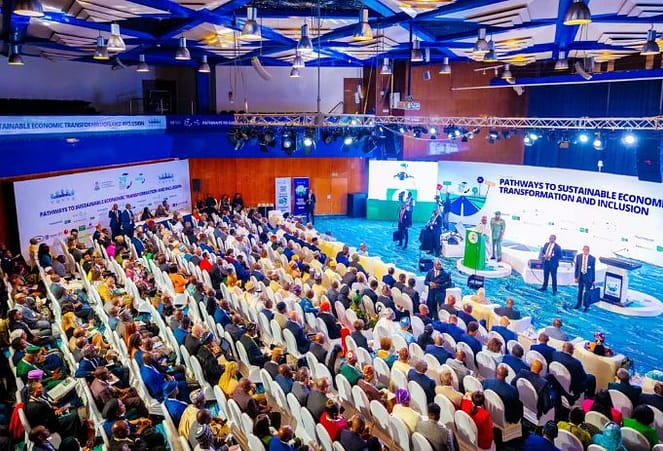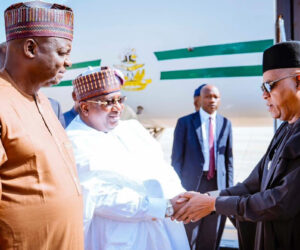Stakeholders in Nigeria’s infrastructure sector have called for greater respect for contractual agreements and sustained political stability to attract and retain private investment critical to the country’s development.
Speaking during a panel session titled Future of Infrastructure Funding at the 31st Nigerian Economic Summit (NESG) in Abuja on Tuesday, experts emphasised that unlocking Nigeria’s infrastructure potential requires private sector-led financing, especially to implement the National Integrated Infrastructure Master Plan (NIIMP).
Sustainable infrastructure growth depends on innovative financing models, including Public-Private Partnerships (PPPs), and incentives for subnational investments.
The stakeholders said private capital must take the lead, supported by clear regulatory frameworks that mitigate risks and ensure long-term returns across national and subnational levels.
Read also: AgriTech, open data, critical to Nigeria’s digital economy – stakeholders
They highlighted that investor confidence hinges on predictable governance and a reliable regulatory environment.
Jobson Ewalefoh, Director-General of the Infrastructure Concession Regulatory Commission (ICRC), stressed that upholding contract terms and maintaining political stability are essential to attracting private investment in Nigeria’s infrastructure sector.
Ewalefoh said investor confidence depends on credible governance and consistent regulatory frameworks.
According to him, “The future of infrastructure funding depends not only on available capital but also on the credibility of our institutions, the coherence of our policies, and the discipline of our implementation.”
Highlighting Nigeria’s infrastructure financing gap—estimated at over $3 trillion in the next 30 years—he stressed the need for private sector participation through Public-Private Partnerships.
He added that how governments honor existing contracts affects investor trust. “Investors watch how current partners are treated before committing funds,” he said, noting that under the current administration, no PPP contract has been canceled—a message to reassure investors.
Abdul Kamara, Director-General of the African Development Bank (AfDB) in Nigeria, emphasised the role of capacity building and technical assistance in turning project ideas into bankable investments.
He highlighted Project Preparation Facilities (PPFs) as key tools for financing early-stage feasibility studies and engineering designs.
Kamara cited the AfDB-supported National Electrification Program, which has attracted over $350 million in private capital by targeting rural energy access through minimum subsidy tenders.
He also noted that Nigeria has yet to fully use risk mitigation tools such as Partial Credit Guarantees and Partial Risk Guarantees—mechanisms effective in other markets—and proposed a roundtable to raise awareness among project sponsors and financiers.
Daniel Mueller, Executive Director and COO of InfraCredit, stressed the need to update state-level PPP laws to allow longer-term concession agreements, especially in social infrastructure.
While welcoming recent reforms like decentralized electricity licensing, improved pension fund investment rules, and a more transparent foreign exchange regime, Mueller said clearer legal frameworks and more consistent project development across federal and state levels are still needed to unlock investment.
The forum also highlighted a key policy reform by President Bola Ahmed Tinubu’s administration that raised the Federal Executive Council’s (FEC) approval threshold for PPP projects to ₦20 billion. This change aims to fast-track smaller projects, reduce delays, and align project timelines with investor expectations.
Ewalefoh described the reform as a strategic gesture of trust and partnership that strengthens the PPP framework.
Participants agreed that despite improvements in the investment climate, the priority now is effective implementation. They called for updates to subnational PPP laws, greater use of risk mitigation instruments, improved public sector capacity, and stronger project preparation.
“The task before us is clear—to turn infrastructure plans into tangible, financeable, and deliverable outcomes,” Ewalefoh concluded.
The roundtable is part of ongoing efforts by the ICRC and its partners to align Nigeria’s infrastructure financing strategy with global best practices while addressing the country’s development needs.









